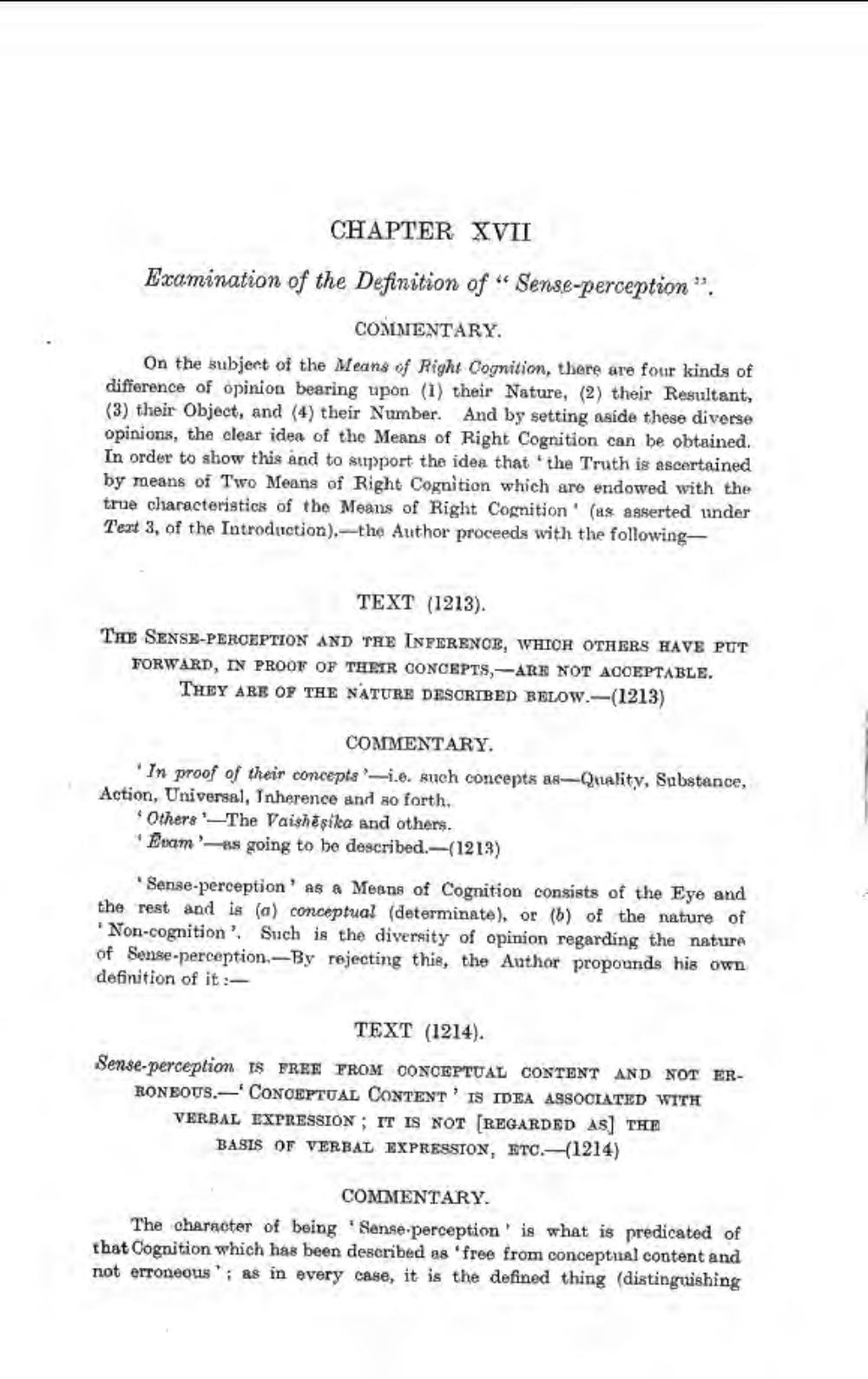________________
CHAPTER XVII
Examination of the Definition of "Sense-perception".
COMMENTARY On the subject of the Means of Right Cognition, there are four kinds of difference of opinion bearing upon (1) their Nature, (2) their Resultant, (3) their Object, and (4) their Number. And by setting aside these diverse opinions, the clear idea of the Means of Right Cognition can be obtained. In order to show this and to support the idea that 'the Truth is ascertained by means of Two Means of Right Cognition which are endowed with the true characteristics of the Means of Right Cognition' (as asserted under Text 3, of the Introduction).--the Author proceeds with the following
TEXT (1213).
THE SENSE-PERCEPTION AND THE INFERENCE, WHICH OTHERS HAVE PUT FORWARD, IN PROOF OF THEIR CONCEPTS,-ARE NOT ACCEPTABLE.
THEY ARE OF THE NATURE DESCRIBED BELOW.-(1213)
COMMENTARY. 'In proof of their concepts i.e. such concepts as-Quality, Substance, Action, Universal, Inherence and so forth.
Others 'The Vaishēsila and others. fuam' s going to be described. --(1213)
Sense-perception as a Means of Cognition consists of the Eye and the rest and is (a) conceptual (determinate), or (b) of the nature of
Non-cognition'. Such is the diversity of opinion regarding the nature of Sense-perception-By rejecting this, the Author propounds his own definition of it :
TEXT (1214). Sense-perception is FREE FROM CONCEPTUAL CONTENT AND NOT ERRONEOUS.- CONCEPTUAL CONTENT IS IDEA ASSOCIATED WITH VERBAL EXPRESSION ; IT IS NOT REGARDED AS THE
BASIS OF VERBAL EXPRESSION, ETC.(1214)
COMMENTARY The character of being 'Sense perception is what is predicated of that Oognition which has been described as 'free from conceptual content and not erroneous': as in every case, it is the defined thing (distinguishing




